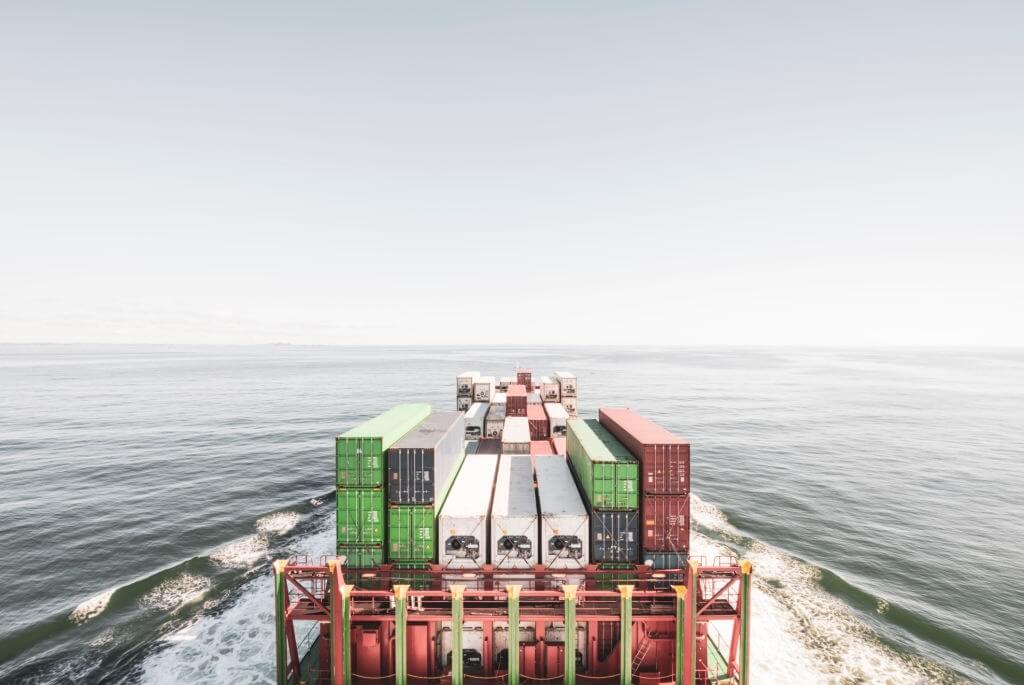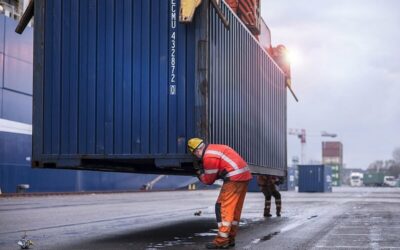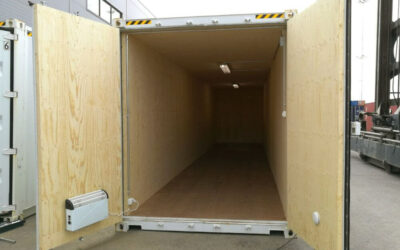Difference Between Freight Forwarder and NVOCC
Table of Contents
For the proper functioning of the supply chain, even if the business is small or large, complete awareness regarding the shipment process is mandatory.
The transport and logistics companies assist different companies and organizations with both smaller and bigger business networks in performing the duties related to planning, storage, and transportation of goods, etc. These companies ensure the safe, secure, and timely transportation and storage of their goods. To run the business successfully in the increasing complexity in the business field, it is necessary to get rid of all kinds of confusions that may affect the functioning and operations of the supply chain.
One of the most prevalent confusions that may arise is regarding the consideration of the freight forwarder and the NVOCC to be the same entity. They both play significant roles in the trade business by assisting their clients but they don’t signify one meaning.
They are responsible for carrying out different jobs but there are areas where they have a lot in common. Regardless of their differences, there is a point of convergence too. To understand these terms there is a need to have a clear concept of their definitions and a clear understanding of the differences in their jobs and duties.
Introduction to Freight Forwarder
Let’s start with freight forwarders who are defined as the experts in logistics and who manage the physical movement of the goods and products for exporters and importers. Freight Forwarder is a party engaged in all modes of the domestic or international transportation process by means of arranging to ship, preparing documentation, customs clearance, warehousing, and delivery. It is a critical part of providing third party logistics and supply chain services on behalf of a client. They have expertise in
- Freight costs
- Port charges
- Costs of a special document
- Insurance costs
- Terminal fees handling
They focus on the supply chain working and, handle and monitor the transportation of the shipment and cargo from one place to another. They tie all the loose ends of the supply chain that need to be coordinated. Freight forwarder being a multi-purpose agent handles the logistics operation on behalf of the owner and also provides advice and consultancy services.
Responsibilities of Freight Forwarder
The freight forwarders are also responsible for the arrangement and compilation of the various documentation related to freight forwarding and logistics. These experts manage various tasks of
- Managing transportation by air or sea despite the number of countries and manage multimodal transportation too
- Stand for customer’s interest while negotiating logistics agreement rates with carriers that can be NVOCC or and Ocean carrier
- Billing
- Offer distribution facilities
- Arrange inland transportation of the goods
- Completion and processing of the documentation required for the movement of goods such as Bill of Lading, custom related documents, port documents, etc.
- Booking or the confirmation of the space on the ocean vessel
- Issuing approved HBL
- Arrangement of the transportation of cargo to the port by rail or truck
- Helping out their clients with documents like Incoterms, letters of credit. Assist the customers with bank clearance, and advise about the most efficient way to move their cargo.
- Warehouse facilities for storing customer’s products before and after shipping.
- Arrangement of insurance on behalf of the shipper
The freight forwarders possess detailed knowledge related to the ports, timing, and the facilities of the ports and, in this way, they advise the shippers to choose the best and cost-saving option possible. Freight forwarders can assist their customers with an instant shipping quote.
Introduction to NVOCC
NVOCC stands for Non-Vessel Operating Common Carrier. These carriers do not own any ships. They book spaces in the ships that operate across the ocean trade lanes and then sell those spaces to their customers. The NVOCC works as the carrier for transporting goods from one place to another with or without owning any vessel.
Responsibilities of NVOCC
The NVOCC buys or rents the space of a vessel and fills it with its customer’s products to be transported. Most of the responsibilities of NVOCC are similar to that of the freight forwarder. The clients of the NVOCC can include freight forwarders, freight brokers, clearing agents, importers, or exporters/ BCO beneficial cargo owners. Most cases perform all the duties of freight carriers. These can include:
- Process contracts of international shipping
- Receive and deliver cargo
- Handling documentation like Bill of Lading and other important requirements
- Renting or buying cargo spaces and arranging transportation
- Handle transportation charges.
- Negotiate the volume rates with carriers
- Have their agents for handling the port protocols for clearing their customer’s containers.
As there is a lack of any international regulating body, the number and whereabouts of the NVOCCs that are currently working are hard to calculate. But there are countries where the NVOCCs need to get registered before offering any logistics services including the USA and China. Carrier to shippers and shippers to carriers. The Blue Anchor Line is one of the top NVOCCs in the world
Are They Two Different?
There are differences that people fail to recognize when it comes to documentation and responsibilities. To tell the difference, one can take the help of the Bill of Lading. In case if you have an NVOCC as the service provider then, the master bill of lading will not be direct with the bearer of the shipment. They too are considered to be carriers though of a different type yet they do have their bill of lading and other crucial documents.
Basic Difference B/W Freight Forwarder and NVOCC
The following are some key differences between the two:
| The freight forwarders are a part of an international association FIATA which is the International Federation of Freight Forwarders Association. | The NVOCCs don’t belong to any international association. There may be some localized groupings in different countries. |
| The freight forwarders don’t hold any containers | NVOCC manages containers. Some of the big NVOCCs own and operate their own fleet of containers |
| The freight forwarders carry out the documentation procedures according to the international FIATA standards | The NVOCC does not follow any documentation standard. |
| They may act as an agent for NVOCC | Not likely to find an NVOCC acting as an agent for a freight forwarder |
| The freight forwarders act as the agents for the importers and exporters | The NVOCCs act as carriers for exporter and importer. |
| Usually, the freight forwarders have their own warehouses to store the products of their customers after loading the cargo from the ports. | Only the larger NVOCC have their own warehouses. |
| Freight forwarders from different countries from all the corners of the world work together to discuss costs and bring improvements in deliveries. | NVOCC operates independently and determines the tariffs themselves. |
There also exists a difference in the issuance of documentation. NVOCC issues the Bill of Lading and the freight forwarders don’t issue these documents. This bill then can be used to hold the NVOCC responsible for any damage to the goods during the journey and the loss can be compensated. The freight forwarders get the bills from the carriers that come in contact with them.
According to the latest trends efforts are being made to merge the services of both the freight forwarder and NVOCC for some companies so that the customer can avoid the hassle to take the help of both for the logistics process.






